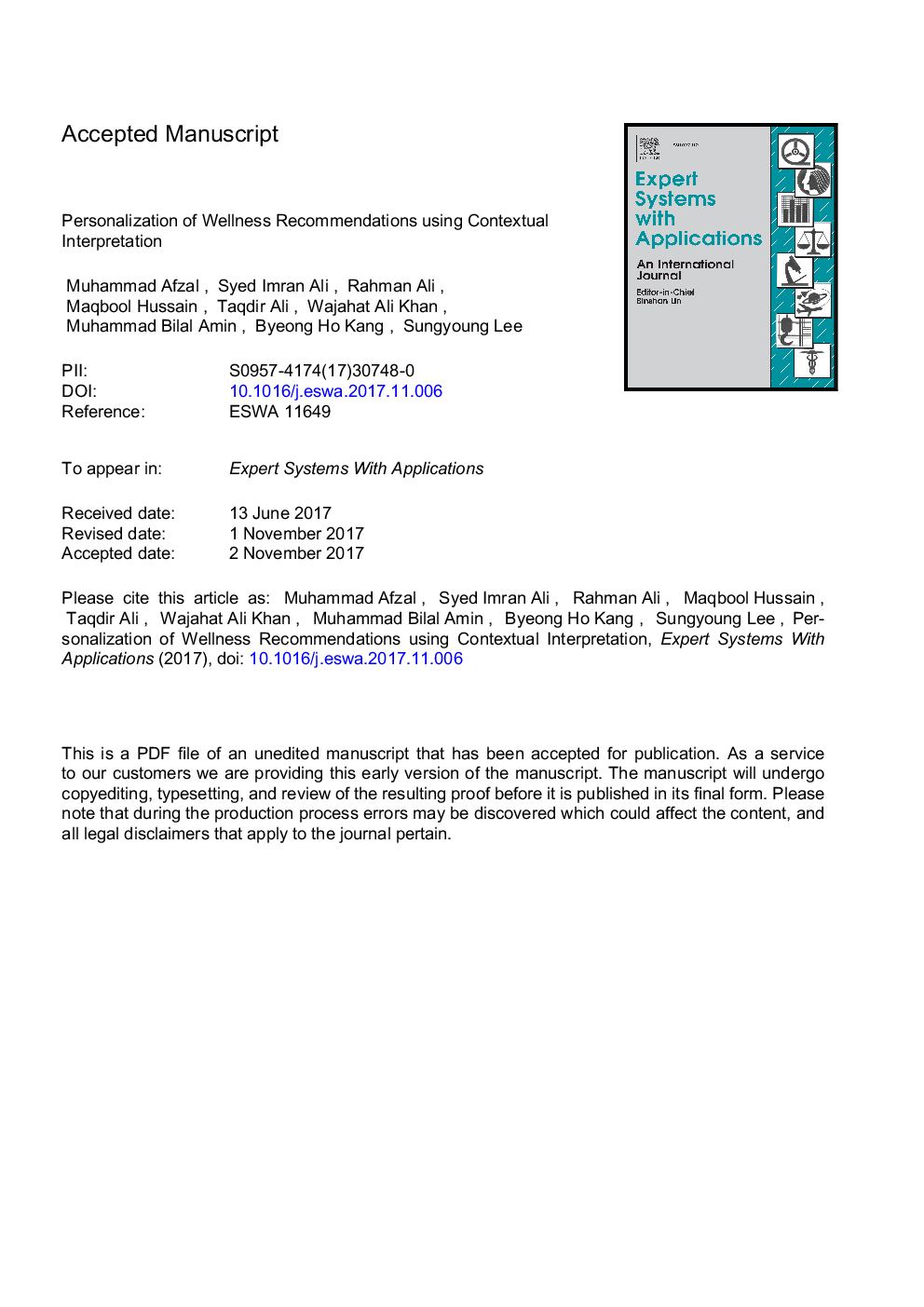| Article ID | Journal | Published Year | Pages | File Type |
|---|---|---|---|---|
| 6855284 | Expert Systems with Applications | 2018 | 39 Pages |
Abstract
A huge array of personalized healthcare and wellness systems are introduced into the portfolio of digital health and quantified-self movement in recent years. These systems share common capabilities including self-tracking/monitoring and self-quantifications, based on the raw sensory data. These capabilities provide solid ground for the users to be more aware of their health; however, such measures are inefficient for changing the unhealthy habits of the users. In order to induce healthy habits in the users, a system must be capable of generating context-aware personalized recommendations. The main obstacle in this regard is the contextual interpretation of recommendations based on user's current context and contextual preferences. To resolve these issues, we propose a methodology of cross-context interpretation of recommendations (CCIR) for personalized health and wellness services. The CCIR method adds additional capabilities to the traditional reasoning methods and builds advanced form of the reasoning with the incorporation of contextual factors in the process of interpretations of the recommendations. With CCIR, the self-quantification systems can be enhanced to generate personalized recommendations in addition to tracking, quantifying, and monitoring user activities. In order to validate the proposed CCIR methodology, a set of 40 contextual scenarios and corresponding recommendations are presented for the evaluation collected from 40 different end users and 10 domain experts. Using chi-square test evaluation, the results demonstrated acceptable “goodness of fit” indices for the system developed on proposed CCIR methodology with respect to the end users' opinion. Also from the statistical observation, it is found that there exists a higher level agreement towards the system between the participants of both end users and experts.
Related Topics
Physical Sciences and Engineering
Computer Science
Artificial Intelligence
Authors
Muhammad Afzal, Syed Imran Ali, Rahman Ali, Maqbool Hussain, Taqdir Ali, Wajahat Ali Khan, Muhammad Bilal Amin, Byeong Ho Kang, Sungyoung Lee,
